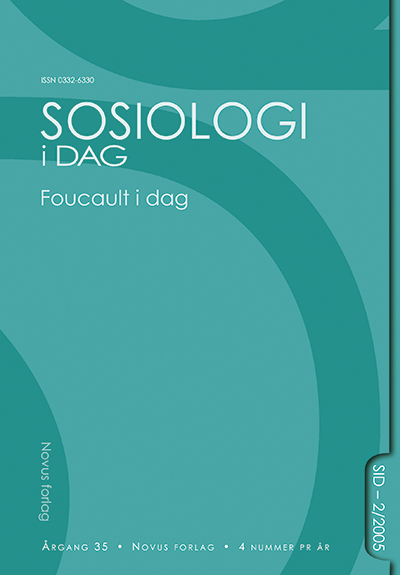Abstract
Abstract
In this article I use Michael Foucault's discussions of the relations between power and knowledge to explore the Norwegian health policy. It is mainly the intensifying of what we can call the prophylactic or preventive strategy that will be debated. I will argue that knowledge is not "innocent" or "neutral", but instead is related to and supports "techniques" that can be interpreted as mechanisms of power; which means techniques that affect our bodies, that influence our way of acting and that form our senses. The body is an object for installing and extracting knowledge. In this perspective, power is not only seen as a repressive force, but will primarily be considered as a productive force: The state has developed different health initiatives that produce more information and knowledge about the population, and everybody can use this knowledge as a resource in their own "work" for constructing an identity. And because citizens always behave disobediently, incomprehensibly and unpredictably they produce a need for more knowledge and new initiatives from the government.
Key words: Power, Foucault, prophylactic, health policy, knowledge.
Authors who publish with this journal agree to the following terms:
Â
- Authors retain copyright and grant the journal right of first publication, with the work 1 year after publication simultaneously licensed under a Creative Commons Attribution License that allows others to share the work with an acknowledgement of the work's authorship and initial publication in this journal.
- Authors are able to enter into separate, additional contractual arrangements for the non-exclusive distribution of the journal's published version of the work (e.g., post it to an institutional repository or publish it in a book), with an acknowledgement of its initial publication in this journal.
